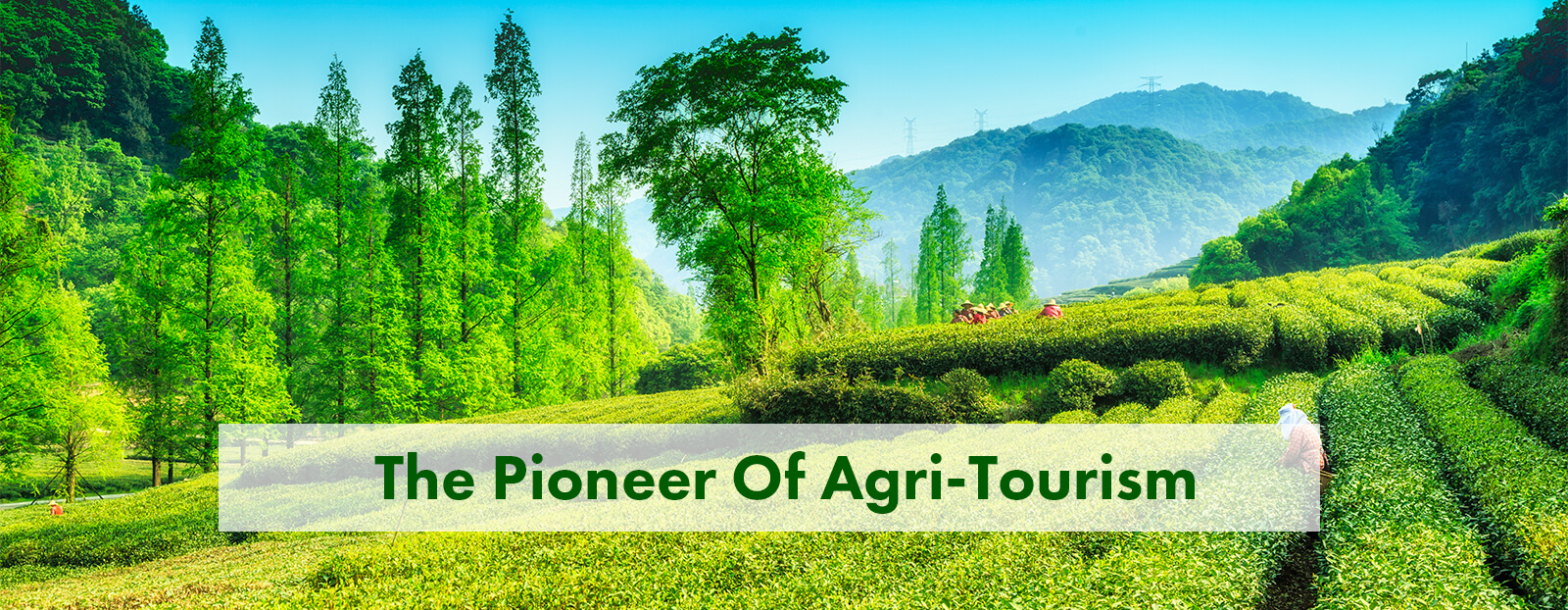
The Pioneer Of Agri-Tourism
Agritourism has challenged the common notion that tourism involves going to beaches, trekking through the mountains, going for walks at hill stations or going to snow-clad regions and playing in the snow. Agritourism is a term that was coined by combining the two words, ‘Agriculture’ and ‘Tourism’. We realised the importance of Agritourism after talking with Mr. Pandurang Taware.
Mr. Pandurang Taware was born and brought up in a village called Sangavi in the Baramati district of Maharashtra. He completed his education in an english-medium school. His father wanted his son to become a farmer like him, but Mr. Pandurang wanted to study further. He came to Pune to pursue a degree in Computer Science from Wadia College, since there was no scope of acquiring higher education in his village. This was in the 1990s, when Computer Science didn’t hold much importance. He worked for many companies like Eureka Forbes Sales, Club Mahindra Holidays, Sterling Resorts, etc. for 17 years. Being a farmer’s son, he wanted to contribute something towards the agricultural field, even after getting a good work experience. And so, he started studying about agriculture for the farmers and the conservation of farming. He tried out new and different concepts to bring this field into the limelight and to help as many farmers as possible. When Mr. Pandurang thought about the idea of Agritourism, he started researching about it further. He decided to do a market survey to understand the scope of this field. He asked general and basic questions to people from various fields like teachers, professors, bank employees, government officials, managers of different organisations and associations etc. Some of the questions were,- “Do you have any relatives who reside in a village?”, “Do you meet them during any functions or festive seasons?”, “Have you ever worked in a farm?”, “Have you ever experienced swimming in a well?”, “How much can you spend for such an activity?”, “How far are you willing to travel for such an activity?” etc. The results of the survey declared that around 43% of citizens didn’t have many relatives residing in a village. A probable rise in this percentage can be attributed to the rapid growth of urbanisation in the year 2019. Mr. Pandurang could understand the scope of Agritourism through this survey. He decided on working towards promoting the business of farming after seeing the results of the survey. He started an Agritourism center on a 30-acre land in a village called ‘Palshi’ on an experimental basis. Tourists from more than 28 different countries have visited this center till this day. He named his company as ‘Agri Tourism Development Company’. He has started Agritourism centers for farmers under this company and has given guidance wherever needed. There were hardly 1 or 2 Agritourism centers in 2004; but now, more than 600 centers have opened up all over Maharashtra as of April 2019. Nearly 21 lakh tourists have visited these centers in the past 3 years. The farmers have made more than ₹50 crore through this activity. After seeing its massive success in Maharashtra, the idea of Agritourism has started to spread all over India. The local governments of Punjab, Sikkim and Karnataka have issued new travel policies that are favorable to Agritourism. The Central Government has started encouraging the growth of this field all over India. The Government officials took efforts to boost the growth of Agritourism in 2016. For example, it is now compulsory to take the students from 5th to 10th standards on a field trip to the farm so that the students can experience and learn all about the rural lifestyle and culture. It is permissible to construct up to 8 rooms for Agritourism, under the Government rules and regulations. Taking NA permission for such type of construction is not mandatory.